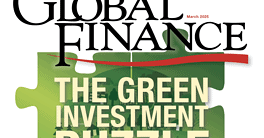DEAR READER
September 2010 | Vol. 24 No. 8
After many months of prevarication, ferocious negotiation and somewhat disappointing horse trading, the shape of the new regulatory environments in the US, Europe and the UK is becoming clear. The new rules address some key concernsparticularly related to the causes of the recent global crisisand demonstrate that the politicians and regulators in the developed markets are serious about preventing a repeat of the turmoil that led to a near-meltdown of the world’s financial systems.
But, as we find out in our cover story this month, the new rules have not created the neat, streamlined system many had hoped for and, perhaps inevitably, no one is happy with the end result. Supporters of tighter oversight across the board are profoundly disappointed that the regulations, particularly in the US, don’t go far enough to rein in the bonus culture that contributes so much to the excessive risk-taking mentality in many segments of the financial services industry. Banks are predictably horrified at the sharp increase in red tape that they claim will make it harder for them to serve their clients effectively and economically. Businesses are concerned that the tightened regulations will simply increase their costs while failing to address the real risks they are facing.
Among the most disappointed, though, are those who had hoped the global financial crisis would prompt the creation of a global, unified regulatory environment. With so many different regulators involved and so many competing interests at stake, it has become clear that the establishment of a universal framework covering all financial markets is simply a utopian dream. No matter how closely linked the markets in Beijing, Bogot, Bangalore and Boise become, they will still be overseen by regulators with different rules, focused primarily not on the health of the global financial system as a whole but on the best interests of the local players.
While the new regulatory environment is a far cry from the efficient, uncomplicated global system for which the idealists were hoping, it is still a step in the right direction. Certainly, it will lead to higher costs in the short term for businesses and banks alike. But the focus of all this regulatory upheaval is not the short-term fortunes of individual banks or businessesit’s the long-term stability of the global financial system. For that, a modest increase in short-term costs is a price well worth paying.
Until next month.
Dan Keeler
dan@gfmag.com

